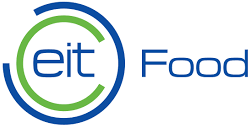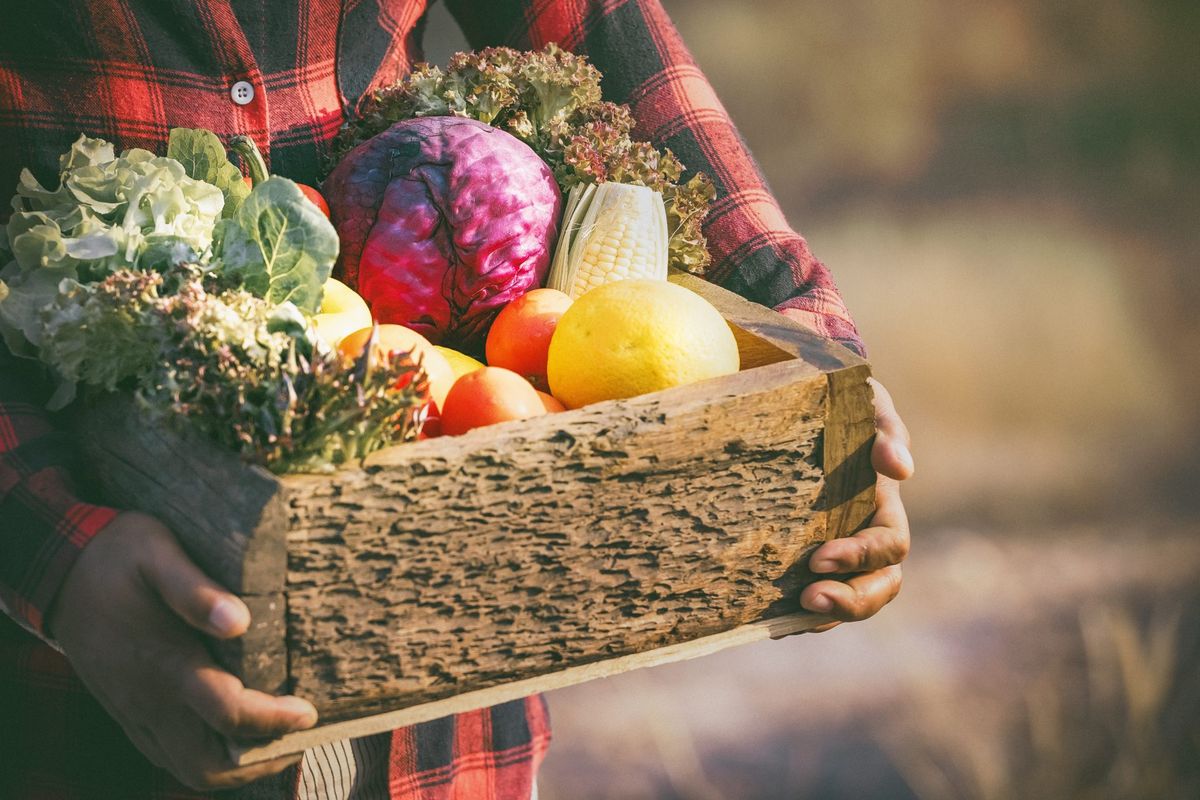
Summary
No time to waste transforming Europe’s agri-food sector
If the world can achieve food sustainability, despite climate change and rising food demand, it can achieve sustainability everywhere. This ray of hope emerged during the ‘Future of Food’ conference in Brussels on 20 November 2019, jointly organised by Friends of Europe and EIT Food. Stakeholders from across the food value chain – from farm to fork – engaged in lively debate with scientists and policymakers on ways to sustainably transform this pressurised sector.
“Food is wrapped up with our well-being and emotions, as well as every aspect of our society and physical world,” noted the moderator Dharmendra Kanani, Director of Insights at Friends of Europe. He urged this conference to come up with policy ideas and recommendations on food system reforms for the new EU mandate.
Hunger remains a key problem worldwide, even though crop yields have increased with intensive farming. Millions go hungry in the South, while twice as many (two billion) are either obese or overweight, mainly in the North.
European consumers increasingly want healthy, nutritious and affordable food. Farmers struggle to match their rising demands, and to make a living while meeting environmental rules. To compound problems, the land needed to produce so much of our food is also under increasing pressure from human activities and global warming. “Agriculture, alongside deforestation and peatland damage, accounts for a fifth of greenhouse gas emissions,” warned Koko Warner, from the UN Climate Secretariat and co-author of the IPCC’s new ‘Climate Change and Land’ report.
Sustainability is the only solution
To feed millions more and to feed everyone better, the agri-food sector must fully commit to sustainability. This could result in just 3.5% of the world’s population going hungry by 2050. “A sustainable scenario means achieving more by producing less,” noted Marco V. Sanchez, from the UN’s Food and Agriculture Organization. We will also need smarter and more intensive farming, new technologies, reduced livestock emissions, and diets mainly based on plants.
Other participants also argued for systemic and transformative change in agri-food. “Time is running out, with 9 billion to feed by mid-century and climate change threatening chaos for our planet and food system, so we must decarbonise six times faster than planned,” said John Bell, Healthy Planet Director at the European Commission Directorate-General for Research and Innovation. Hence the importance of the new European Green Deal, designed to make the continent climate-neutral by 2050 and to transform Europe in the process. Andy Zynga, CEO of EIT Food, said the European Green Deal is a great opportunity for the EU to transition to a more sustainable food system, leveraging all tools at our disposal, including the upcoming Horizon Europe R&I programme.
According to John Bell, the Green Deal will frame the pathways, transitions and means to achieve sustainability – with food at the centre of public policy. “This sustainability drive is the EU’s 5th great mission,” he added. The EU will introduce a just transition fund to help poorer Europeans to cope with the associated costs.
Behaviour change will be essential for this EU transition. Everyone in the food value chain must sign up to it, starting with food producers. Luisa Crisigiovanni of Altroconsumo, an Italian consumer body, said consumers should be convinced that sustainable food’s benefits outweigh the costs: “Europeans must feel part of the food chain. Let’s increase their trust in food’s origin and quality, and reduce food waste.”
Pathways to transition
New and innovative technologies – from smart farming to satellites, robots, and artificial intelligence – will grow Europe’s agri-food sector. Further support is expected from major new investment, like the AGRI3 sustainability fund, plus more public-private partnerships and knowledge transfer to food SMEs.
“We have a food crisis, but this conference has set Europe on a transformative journey to sustainability,” concluded the moderator, after several workshops and brainstorming sessions.
About
The food sector is facing a number of challenges: malnutrition and obesity have become pandemics, more and more people speak out against factory farming and the sector is still responsible for 12-17% of the greenhouse gas emissions in Europe. However, change is on the horizon. State-of-the-art plant-based products are battling meat and fish for the centre of the plate, digitalisation enables new forms of farming and behavioural scientists are exploring how best to nudge consumers in the direction of healthy and sustainable diets.
This high-level conference, organised in partnership with EIT Food, will bring together an exciting mix of high-level speakers and a few hundred participants, including policymakers, business leaders, start-ups, civil society representatives, farmers and academics. The conference will explore different approaches to transforming the food system – be it through innovation, investment, education or consumer engagement.
The conference has reached its full capacity and we are not in a position to accept any additional registrations. We’ll be live-tweeting on @friendsofeurope #FutureFood19 and sharing the summary of the debate shortly after. Thank you and stay tuned!
PHOTO CREDIT: Bigstock/venusvi
Our events include photos, audio and video recording that we might use for promotional purposes. By registering, you give your permission to use your image. Should you have any questions, please contact us.
Schedule
Globally, the agrifood sector is not fit for purpose. Changing attitudes towards the environment, health and lifestyle and depleting resources are forcing the sector to adapt to 21st century challenges. Humanity’s demand for ecological resources and services in a given year exceeds what earth can regenerate in that year. Malnutrition and obesity have become pandemics, intensive farming practices have led to erosion and decline in soil quality, biodiversity is plummeting, and the climate breakdown is now impossible to ignore. However, these challenges also present opportunities to the way we produce, consume and share food. Behavioural research on consumerism, new farming methods, new ingredients and the application of digital technologies to food production show there are opportunities for change.
Speakers
Marco V. Sánchez
Deputy Director of the Agricultural Development Economics at the Food and Agriculture Organisation of the United Nations (FAO)
Europe understands the need for food system transformation, as demonstrated by its aim to remove barriers to innovation and investments through Horizon 2020 and, in the future, Horizon Europe funding. Additionally, Food 2030 addresses food and nutrition security questions in the form of R&I policy responses. Europe wouldn’t be Europe if it wasn’t developing innovative solutions. Plant-based and lab-grown meat alternatives are gaining ground in supermarkets and stock markets. We now know that through listening to consumers and embracing digitalisation, it is possible to find new solutions which could feed the world, address health issues and tackle the environmental crisis. But between innovative research and the generation of impact there is a huge gap to cover, so identifying the right tools at Europe’s disposal will be a key determinant of future success.
Questions include:
- How can Europe leverage its high-quality research to innovate its food production and consumption?
- Do we have the entrepreneurial skills and investment tools to identify and develop the right innovations, and bring them to the market?
- What policies are needed to build the future of food in Europe and how will the EU ensure the coherence and complementarity of such policies?
Speakers
John Bell
Healthy Planet Director at the European Commission Directorate-General for Research and Innovation
Luisa Crisigiovanni
Secretary-General at Altroconsumo
Luke Disney
Head of Communications, Banking for Food and Corporate Affairs at Rabobank
Gert Meijer
Chair of the European Technology Platform (ETP) ‘Food for Life’ and Deputy Head for Corporate Regulatory and Scientific Affairs at Nestlé
Moderator
Dharmendra Kanani
Chief Operating Officer and Chief Spokesperson of Friends of Europe
Consumers are kingmakers in the world of food – their dietary choices dictate what large and small companies will invest in. That’s why understanding consumer behaviour and attitudes is key to shaping the future of food. Analysing the treasure trove of data on consumer trends and preferences can focus minds on where action is most effective. Alternatively, behavioural scientists can help us understand how best to nudge consumers in the direction of healthy and sustainable diets. At present, consumers are disconnected from the food production system. Evolving from a linear to a circular food system will encourage consumers to participate in the food system again and create local food communities. In 2050, 80% of food will be consumed in cities, giving citizens the power to revolutionise the food system.
Questions include:
- What are the key drivers of consumer behaviours which shape people’s diets?
- What can Europe do to make consumers engage with food production?
- Can the trust between producers and consumers be improved through digital solutions?
- Could regions and cities be at the forefront of the food revolution?
Speakers
Alexandra Nikolakopoulou
Head of Unit, Food Information, Composition and Waste at the European Commission Directorate-General for Health and Food Safety
Brij Sahi
Chief Executive Officer at SwissDeCode
Anna Wissmann
Coordinator of the Network of Food Policy Councils
Innovative dairy and meat alternatives are taking the global food industry by storm. Be it algae, insects or plants: traditional protein sources will have to compete for their spot in the food chain. In their pursuit of environment-friendly and healthy eating habits, consumers are starting to question their meat and fish consumption. Global warming also requires a change in diet, given that livestock and overfishing are responsible for a large extent of food-related greenhouse gas emissions. However, global demand for these products is projected to massively increase and be unsustainable by 2050. In response to these worrying trends, leading publications, The Lancet and Science, propose diversifying protein sources and switching to a largely plant-based diet to sustain our ever-growing population and remain within the planetary boundaries.
Questions include:
- How can policymakers help consumers shift to a healthy and sustainable diet, with greater diversity of protein sources?
- How do we find the right balance between innovation, consumer acceptance and producing at scale to satisfy investors?
- If the future of food means less animal-based proteins in our diet, how will the EU cope with the transition towards a less intensive livestock sector?
Speakers
Hélène Miller
European Regulatory Affairs Specialist at Aleph Farms
Pekka Pesonen
Secretary-General of COPA-COGECA
Gijs Schilthuis
Head of Unit for Policy Perspectives at the European Commission Directorate-General for Agriculture and Rural Development
Europe’s agriculture sector is still responsible for 10-11% of total greenhouse gas emissions. At the same time, unsustainable farming practices are an important driver of biodiversity loss and environmental degradation. Digitalisation – whether it pertains to new technologies, the analysis of big data or the development of online and spatial applications – can contribute to achieving systemic food production transformation in a way that aligns the sector more closely with contemporary sustainability and health challenges. New techniques and systems are emerging to help us achieve these goals, such as using artificial intelligence for smart farming, precision and urban farming. ICT also offers opportunities to renew business models in the food value chains by connecting producers to consumers, setting-up innovative marketing channels, new types of short food supply chains or improving logistics.
Questions include:
- Can digitalisation be harnessed to create new successful business models that optimise the sustainable use of natural resources along the food system?
- How can farmers use digital technologies to increase consumers’ understanding of challenges and opportunities in food production?
- What are the main obstacles to the uptake of digital technologies in the agri-food sector and what can the EU do to overcome them?
Speakers
Linda Grieder
Chief Executive Officer at RethinkResource
Cécile Huet
Deputy Head of Unit for Robotics and Artificial Intelligence at the European Commission Directorate-General for Communications Network, Content and Technology
Wolfgang Wohlgemuth
Senior key expert on future human-machine interaction at Siemens AG Digital Industries
Rapporteurs from the morning workshops will come together in a plenary session to discuss the results from the various parallel sessions. Each will outline the main statements and points that were made during their workshops as well as identify two key themes to be further explored. All will be shared with the conference audience and discussed during the next session.
Table conversations among participants run in parallel on topics that were identified in the session before. Each table (maximum 6) will ‘inherit’ an idea/solution from one of the workshops and each will be asked to provide a set of concrete recommendations to the EU as a whole to promote that solution.
Each roundtable lead will ensure the focus is on what the EU can do to turn solutions into impact. Recommendations will be collected and compiled in a report to be disseminated after the event.
Speakers
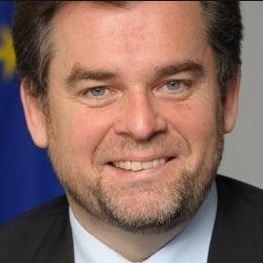
Healthy Planet Director at the European Commission Directorate-General for Research and Innovation
John Bell is the ”Healthy Planet” Director in DG Research & Innovation. He is responsible for leading the Research and Innovation transitions on Climate Change within planetary boundaries, Bioeconomy, Food Systems, Environment and Biodiversity, Oceans and Arctic, Circular Economy, Water and Bio-based innovations. This includes harnessing the investments of 10bn Horizon Europe, Circular Bioeconomy, the EU Bioeconomy Strategy, and Governing Board of 3.7bn in Bio-based Industries Joint Undertaking, as well as delivering policy initiatives as FOOD2030, and the All Atlantic Ocean Research Alliance.

Secretary-General at Altroconsumo
Luisa Crisigiovanni is the head of Altroconsumo, the most representative independent consumers’ association in Italy with more than 359,000 members in 2018. Luisa is also part of the Executive Board of BEUC – The European Consumers organisation, and its Treasurer since 2015. Separatelyn she is an AC representative at the National consumer council of the Ministry of Development. Luisa has been dealing with consumers’ law for more than 25 years and serves as advocate for consumers rights at national and international level.
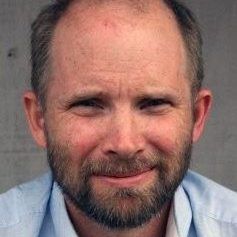
Head of Communications, Banking for Food and Corporate Affairs at Rabobank
Luke Disney is an experience senior executive with a 20-year track record in Europe, Africa and North Africa. He currently works with Rabobank, a cooperative bank that focuses on international business and rural activities. Previously he led the INSEAD Centre for Social Innovation and spent 13 years as a social intra/entrepreneur. Disney was part of the ground-breaking partnership between the United Nations World Food Programme and TNT Express focused on fighting global hunger. He also founded North Star Alliance, an award-winning social enterprise uniting more than 180 governments, businesses and civil society actors reach highly mobile populations in Africa with essential healthcare services to help stop the spread of HIV and other communicable diseases across the continent.
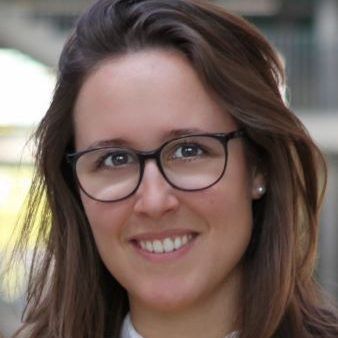
Chief Executive Officer at RethinkResource
Linda Grieder is lawyer by training and entrepreneur by heart. She founded RethinkResource in 2016, a fast growing clean-tech start-up in Switzerland. RethinkResource is an agency for upcycling innovation and additionally offers one of the first cross-industry marketplaces for industrial waste- and side-streams. Secondary materials and circular economy thus build her main area of interest and expertise. Before becoming an entrepreneur, Linda specialized in IP law and was mainly concerned with the impact of changes in society on law.
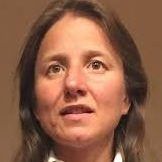
Deputy Head of Unit for Robotics and Artificial Intelligence at the European Commission Directorate-General for Communications Network, Content and Technology
Cecile Huet helps lead one of the world’s largest civilian programme in robotics, which is responsible for assisting beneficial robotics and AI developments across all of Europe. In her current role, she has been at the heart of the Communication on Artificial Intelligence for Europe, the Coordinated Plan on Artificial Intelligence and the Communication on Building Trust in Human-Centric Artificial Intelligence. Prior to her work in the Commission, she specialised in signal processing. In 2015, she was selected as one of the “25 women in robotics you need to know about”.
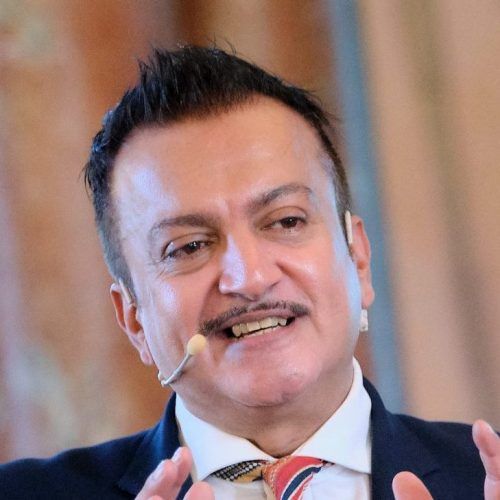
Chief Operating Officer and Chief Spokesperson of Friends of Europe
Prior to joining Friends of Europe, Dharmendra Kanani was director of policy at the European Foundation Centre (EFC). He was the England director at the Big Lottery Fund, the largest independent funder in the UK and fourth largest in the world. Dharmendra has held senior positions in the public and voluntary sectors and advisor to numerous ministerial policy initiatives across the UK.

Chair of the European Technology Platform (ETP) ‘Food for Life’ and Deputy Head for Corporate Regulatory and Scientific Affairs at Nestlé
Gert Meijer has held a number of senior positions in the food and health sector throughout his career. He has worked at Nestlé for the past six years, where he helps provide regulatory and nutrition knowledge to help support innovation. Meijer is also the Chairman of the European Technology Platform for the food sector “Food for Life”. Before joining Nestlé, Gert worked at the National Institute of Public Health in The Netherlands and then for Unilever R&D as global Vice-President Nutrition & Health. Since 2012, he is a visiting professor at the University of Ulster (UK), focusing on the application of nutritional sciences in the food industry.

European Regulatory Affairs Specialist at Aleph Farms
Hélène Miller is a legal expert with more than a decade of experience in Israel and France. She recently joined Aleph Farms, a food-tech startup company that produces cell-grown meat that resembles conventional meat. Previously, she worked as a lawyer and a consultant in major law firms in the regulatory life sciences field, including Dentons, Norton Rose and DLA Piper. Her areas of expertise include European regulation, marketing authorisations, market access, labelling and advertising of regulated products, and bioethics issues.
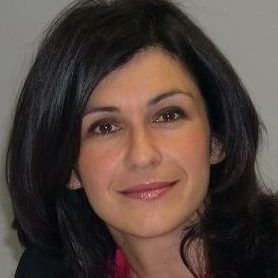
Head of Unit, Food Information, Composition and Waste at the European Commission Directorate-General for Health and Food Safety
Alexandra Nikolakopoulou is a food law expert with more than a decade of experience in the European Commission’s DG SANTE. She currently heads the unit responsible for food information and composition and food waste. Throughout her career, she has dealt with issues relating to food labelling and general food law. More specifically she was responsible for the EU Regulation on the provision of food information to consumers. She has also worked with the legal unit of the former DG SANCO and as an advisor at EuroCommerce, the European association of retail and wholesale companies.
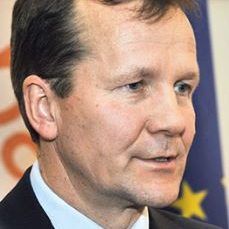
Secretary-General of COPA-COGECA
Pekka Pesonen is a qualified agronomist and leading representative of European farmers and agri-cooperatives, speaking for more than 70 national farming organisations from across Europe. He previously worked as state secretary for the Finnish ministry for agriculture and forestry. Pesonen also holds extensive professional experience in lobbying at the EU level on behalf of Finnish farmers, forest owners (MTK and SLC) and agri-forestry cooperatives (Pellervo). In the 1990s, he worked in the sales and marketing department of Valio, a Finnish dairy company. Pesonen has also been a member of several high-level advisory groups concerning EU policy preparation.

Chief Executive Officer at SwissDeCode
Passionate about food and health, Brij Sahi currently leads SwissDeCode, an organisation which makes use of DNA detection solutions to improve food safety. He has previously held several senior executive and leadership positions in the airline & aerospace sector and the IT & telecom fields. He has extensive experience in Europe, China and India.
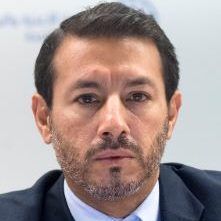
Deputy Director of the Agricultural Development Economics at the Food and Agriculture Organisation of the United Nations (FAO)
Marco Sánchez is a renowned development economist and a leading figure in the FAO, where he heads its flagship reports, The State of Food Security and Nutrition in the World and The State of Food and Agriculture. Sánchez has extensive experience in the United Nations, having worked with the Department of Economic and Social Affairs, the Economic Commission for Latin America and the Caribbean and the Development Programme. He has also been a consultant for the International Food Policy Research Institute (IFPRI) and has supported lecturing and research activities at various universities in the Netherlands and Costa Rica.
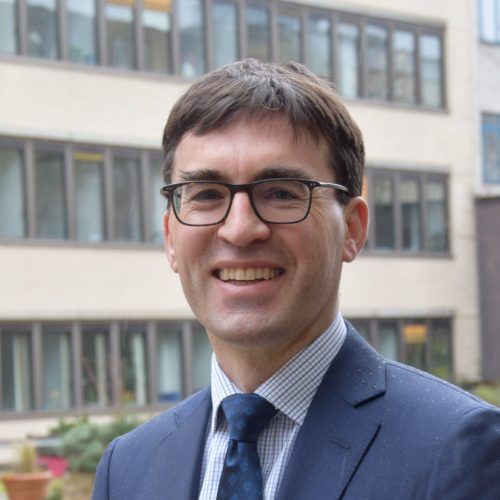
Head of Unit for Policy Perspectives at the European Commission Directorate-General for Agriculture and Rural Development
Gijs is a Dutch civil servant with nearly two decades of experience in the European institutions. In his current position, he focuses at the future prospects of the EU’s agricultural policy. He has worked since 2008, in different capacities, on agricultural policy reform in this Directorate-General. He first joined the European Commission in 2005 at the Directorate-General for Health and Consumers. Prior to joining the Commission, he worked at the European Parliament as a parliamentary assistant.
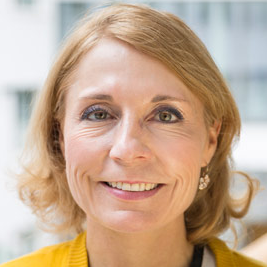
Lead Author of the 2019 IPCC Special Report on ‘Climate Change and Land’; and Manager of the Vulnerability subdivision, Adaptation division at the United Nations Framework Convention on Climate Change (UNFCCC)
Koko Warner manages the UN Climate Secretariat’s Vulnerability subdivision where she guides the adaptation knowledge hub, helping to scale up adaptation action, and the Local Communities and Indigenous Peoples Platform. Warner is an Intergovernmental Panel on Climate Change (IPCC) lead author for the Special Report on Climate Change and Land, and 5th Assessment Report on climate impacts, adaptation and vulnerability. Previously, she was a founder and Executive Director of the Munich Climate Insurance Initiative and Head of Research on Environmental Migration and Social Resilience at UN University in Bonn. In 2014, she was named one of the top 20 women making waves in the climate change debate by the International Council of Science.
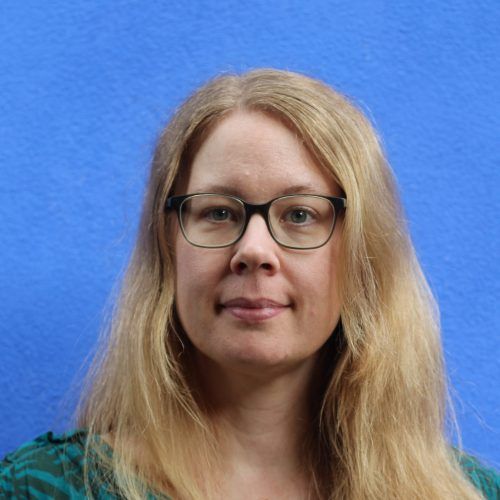
Coordinator of the Network of Food Policy Councils
Since 2018, Anna Wissmann has been working to build the Food Policy Council Network, which currently counts 56 members across cities and towns across Europe. Wissmann was one of the first to be employed in the organisation, having been appointed the coordinator of the inaugural FPC in Germany. Prior to this, she worked for IFOAM-Organics International for several years, supporting the global organic movement through advocacy and leadership development. Wissmann’s academic background is in development and human geography.
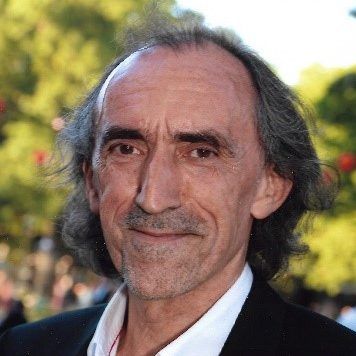
Senior key expert on future human-machine interaction at Siemens AG Digital Industries
Wolfgang Wohlgemuth holds over 30 years of experience in advanced research and development at Siemens Digital industries. He has contributed to innovative solutions for products and services in various domains of factory automation and digitalisation, as well as leading projects on artificial intelligence and knowledge-based systems. His special focus is on the practical usage of augmented and virtual reality technologies for intuitive future human-machine interaction. Over time, he has established a long-term experience in national and European funded activities, including the participation and coordination of consortia with up to 20 partners from industry and research.

Chief Executive Officer at EIT Food
Andy Zynga is an international entrepreneur who currently heads the pan-European consortium for food sector innovation. Before joining EIT Food, Andy built and turned around several businesses in Europe and the USA, and most recently engineered a successful exit for NineSigma, which he ran for 10 years. The majority of NineSigma’s clients are from the agri-food industry. Other stations in his career include KPMG Consulting and Vanco plc.
Partners
Co-organised with
Activities
Climate and Energy Summit 2025
Next event In person & livestreamed

- Area of Expertise
- Climate, Energy & Natural Resources
European Oceans Pact: is maritime transport on board?
Past event In person & livestreamed

- Area of Expertise
- Climate, Energy & Natural Resources
Staying the course: driving sustainability forward in a shifting…
Past event In person & livestreamed

- Area of Expertise
- Climate, Energy & Natural Resources
Navigating risks and enhancing resilience: charting Europe’s energy and…
Past event In person & Livestreamed

- Area of Expertise
- Climate, Energy & Natural Resources
Adaptation without mitigation is nonsense
- Category
- #CriticalThinking
- Author
- By Heïdi Sevestre
Policy Voices | Overcoming Polarisation: can communities shape the green…
- Category
- Podcast
- Area of Expertise
- Climate, Energy & Natural Resources
Energy prices coming down – is Europe on the right track?
- Category
- #CriticalThinking
- Author
- By Andris Piebalgs
Europe’s blackouts call for a NATO-level response
- Category
- #CriticalThinking
- Author
- By Maurizio Geri
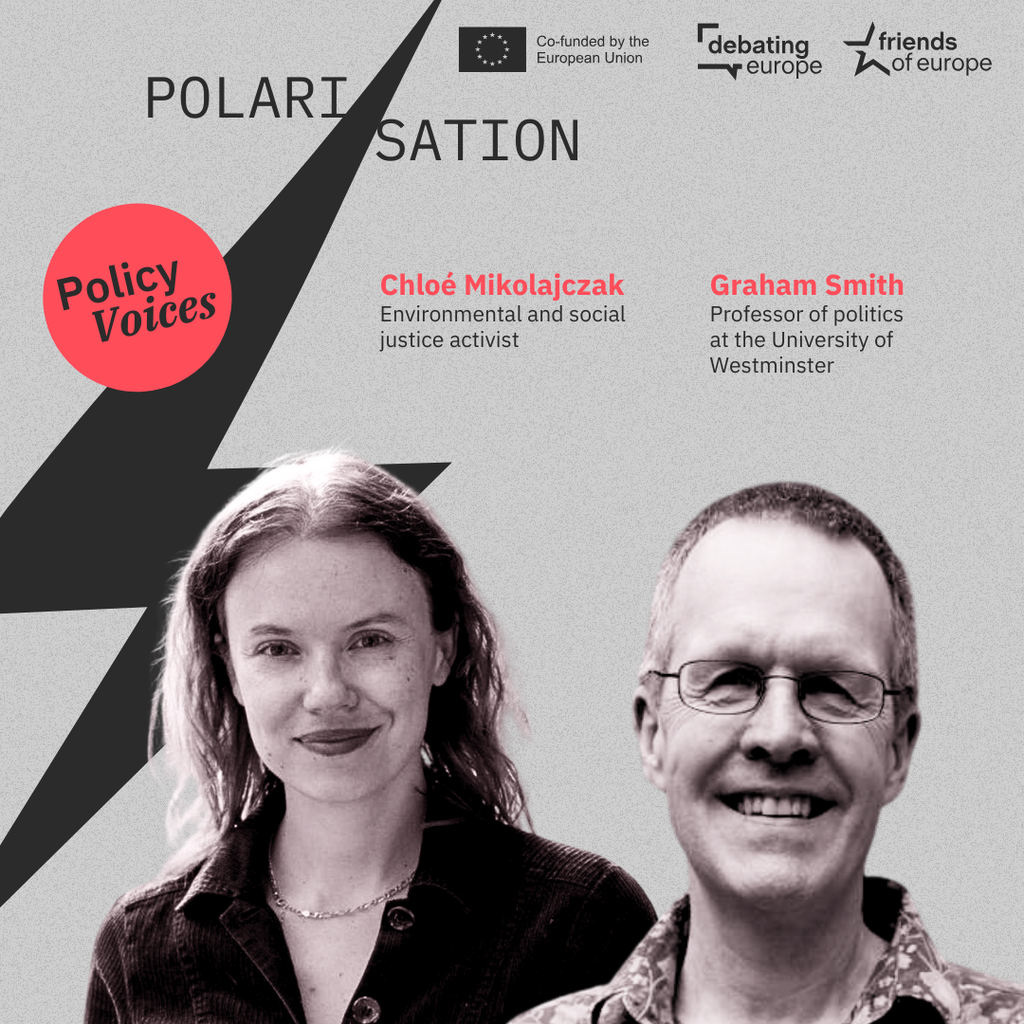
- Area of Expertise
- Climate, Energy & Natural Resources

- Area of Expertise
- Climate, Energy & Natural Resources

- Area of Expertise
- Climate, Energy & Natural Resources

- Area of Expertise
- Climate, Energy & Natural Resources
Continue
the debate on
- Debating Europe

